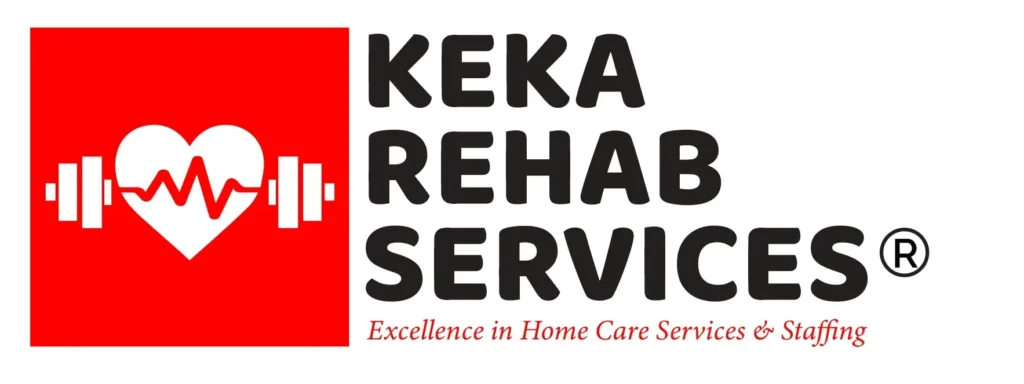Home health care services are a big help for those who need medical care at home. They bring skilled nursing and therapy right to your door. This care is key for getting better and staying healthy over time.
Knowing about home health care for families facing health issues is essential. These services help with everyday tasks and serious medical needs, allowing you or your loved ones to stay home while getting the care they need.
Key Takeaways
- Home health care services provide medical care in your home
- In-home nursing care offers personalized treatment plans
- Services range from essential assistance to complex medical care
- Home care promotes independence and comfort for patients
- Understanding available services helps in making informed decisions
Understanding Home Health Care Services: A Comprehensive Overview
Home health care services give you medical support at home. They help with many needs, from quick recovery to long-term care.
Key Components of Home Health Care
Home health care has essential parts:
- Skilled nursing care
- Home health aides for personal care
- Physical, occupational, and speech therapy
- Medical equipment for home use
Benefits of Receiving Care at Home
Getting care at home has many benefits:
- Comfort and familiarity of your own space
- Personalized care tailored to your specific needs
- Reduced risk of hospital-acquired infections
- Greater independence and control over daily routines
Who Qualifies for Home Health Services
To get home health services, you need:
- A doctor’s order for home care
- Being homebound or having trouble leaving home
- Need for skilled nursing care or therapy
Home health aides help with daily care. Medical equipment supports treatment and recovery. Together, they make a care plan for your health needs.
What Is Home Health Care Services and Their Core Functions
Home health care services bring medical care to your home. They help you recover, stay healthy, or manage chronic conditions at home.
Skilled nursing care is at the heart of home health services. Nurses check your vital signs, manage your meds, and give wound care. They also teach you and your family about your health and treatment.
Home physical therapy is another essential part. Physical therapists help you move better, get stronger, and balance. They create exercises just for you and teach you how to do them safely at home.
Home occupational therapy helps you do daily tasks on your own. Occupational therapists help with dressing, bathing, and cooking. They might also suggest changes to make your home safer and easier to get around.
- Speech therapy for communication and swallowing disorders
- Medical social services for emotional support and resource coordination
- Home health aides for personal care assistance
These services work together to give you complete care. They help you recover and feel better in your own space. Home health care services are tailored to your needs. They ensure you get the care and support you need on your healing path.
Types of Professional Home Health Care Providers
Home health care brings skilled professionals to your home. They offer care in the comfort of your own space. Knowing the different types helps you find the proper care for you.

Registered Nurses and Licensed Practical Nurses
Nurses are key to in-home care. Registered Nurses (RNs) perform complex tasks, manage medications, and plan care. Licensed Practical Nurses (LPNs) provide basic care and supervise patients.
Home Health Aides and Personal Care Assistants
Home health aides are vital for daily tasks. They help with hygiene, meals, and cleaning, ensuring that loved ones stay comfortable and respected.
Therapists and Rehabilitation Specialists
Therapists visit homes to help with recovery and improve life. Physical therapists work on improving movement, occupational therapists help with daily tasks, and speech therapists fix communication problems. They tailor services to your needs, helping you stay independent.
Together, these professionals offer complete support. They tailor care to meet each person’s unique needs.
Medical Services Provided in Home Settings
Home health care services bring doctors to your home. They use special equipment to treat and watch over you.
Wound Care and Medication Management
Skilled nurses come to your home. They clean and dress wounds to stop infections. They also help you take the right medicine at the right time.
Vital Signs Monitoring and Health Assessments
Nurses do regular check-ups at home. They use small devices to check your blood pressure and heart rate. This helps you find problems early and change your care plan.
Chronic Disease Management
Home care helps with ongoing health issues. Nurses teach you to use special equipment like glucose monitors. This enables you to manage your health at home.
Home health care brings expert care to your home, using advanced tools to keep you healthy and independent.
Rehabilitation and Therapy Services at Home
Recovering from injuries or managing chronic conditions doesn’t always need hospital stays. Home physical therapy and home occupational therapy bring expert care to your home. These services help you get stronger, move better, and live more quickly at home.
Home physical therapy helps you move and function better. Your therapist will teach you exercises just for you. This might include:
- Strengthening exercises
- Balance training
- Gait training
- Pain management techniques
Home occupational therapy makes daily tasks easier. Your therapist will help you:
- Make your home safer
- Learn new ways to do daily tasks
- Use assistive devices
- Improve fine motor skills
Speech therapy is also available at home. It helps with talking, swallowing, and thinking problems. Your therapist will make a plan just for you.
These home services are convenient and personal. They allow you to practice skills in your own space, making it easier and more effective to learn to live independently.
Specialized Home Health Care Programs
Home health care has special programs for different needs. These services help patients and families a lot during hard times.
Hospice Care Services
Hospice care at home helps those who are very sick. It makes their last days comfortable. They get help with pain, emotional support, and daily tasks.

Respite Care Options
Respite care gives a break to those who care for others. It lets family members rest and take care of themselves. Professional caregivers help keep care going so everyone can relax.
Post-Surgery Recovery Programs
After surgery, recovery at home is key. Services include wound care, managing medicine, and physical therapy. Patients get the care they need in a cosy place, helping them heal faster.
Home health care programs meet many needs. From hospice to respite and post-surgery care, they make life better. Choosing the right program means getting top care at home.
Essential Medical Equipment for Home Care
Home health care services use many medical tools. These tools help patients feel safe and comfortable at home. They also help manage health issues and keep people independent.
Mobility Assistance Devices
Patients who can’t move much need special help. Wheelchairs, walkers, and canes help them get around safely. Adjustable beds and transfer boards help move without falling.
Monitoring Equipment
It’s important to watch vital signs at home. Blood pressure monitors, pulse oximeters, and glucometers help patients manage their health. These tools give doctors the info they need to change treatment plans.
Safety and Accessibility Tools
Making a home safe is key. Grab bars, raised toilet seats and shower chairs prevent falls. Ramps and stairlifts make getting around easier. Medical alert systems give patients and caregivers peace of mind.
Choosing the right medical equipment is essential. Think about what you need and talk to your home healthcare provider. They can suggest the best tools to improve your life and support your care.
Cost and Insurance Coverage for Home Health Services
It’s essential to know how much home health care costs. The price changes based on the services you need, as well as factors such as where you live, the care provider’s skills, and the complexity of your care.
Medicare often pays for home health care if you qualify. This includes part-time nursing, physical therapy, and more. You must be under a doctor’s care and need these services part-time.
Medicaid’s coverage for home health care varies by state. Some states offer more than others. Always check with your local Medicaid office to see what’s available.
Private insurance might also cover home health care, but the coverage is different for everyone. Check your policy or call your insurance company to determine what you can get. Some plans require approval first or have service limits.
Out-of-pocket costs can include copays, deductibles, and uncovered services. Talk about these costs with your healthcare team and insurance before starting care.
When choosing home health care, consider both short-term and long-term costs. Although it might initially cost more, it can be cheaper than hospital or nursing home stays.
Choosing the Right Home Health Care Provider
Finding the right home healthcare provider can be challenging. Start by looking for good agencies in your area. They should offer a wide range of services.
Look for providers with a good history and happy clients. This shows they are reliable.
Evaluating Provider Credentials
Check if the home health aides are qualified. They should have the proper training and certifications. Ask if they have experience with your health issues.
A good agency will share this information with you.
Reading Patient Reviews and Testimonials
What others say can be very helpful. Read what current and past clients say, and look for comments on the staff’s reliability and care quality.
Good feedback means the agency is known for quality service.
Understanding Service Agreements
Read the service agreement carefully before signing. It should explain what care you’ll get, how much it costs, and the rules. Ask about billing, scheduling, and what to do in emergencies.
An explicit agreement means you know what to expect. You won’t be surprised by anything.
FAQ
What are home health care services?
Home health care services help you get better at home. You get skilled nursing, physical therapy, and help with daily tasks. It helps you recover, manage your health, and stay independent at home.
Who qualifies for home health care services?
You might get home health care if you’re under a doctor’s care. You need skilled nursing or therapy and can’t easily leave home. Your doctor, insurance, and medical condition decide if you qualify.
What types of professionals provide home health care?
Many professionals help with home health care. You might see nurses, aides, physical therapists, and more. They work together to meet your needs.
How is home health care different from personal care services?
Home health care is for medical needs. Personal care helps with daily tasks like bathing. Home health care is doctor-ordered and includes therapy. Personal care is not medical.
What medical equipment is commonly used in home health care?
You might use walkers, wheelchairs, and hospital beds at home. You can also get oxygen equipment and blood pressure monitors. Your needs determine what equipment you get.
Is home physical therapy as effective as therapy in a clinic?
Many people find home physical therapy effective. It allows you to practice in your own space, and your physical therapist will customize it to your home and needs.
What is the role of home health aides?
Home health aides help with personal care like bathing. They also do light housekeeping and remind you to take medicine. They work with nurses and therapists to care for you.
How is hospice care at home different from regular home health care?
Hospice care is for those with serious illnesses. It focuses on comfort and quality of life. Regular home health care helps with recovery and managing health.
What is respite care and how does it relate to home health care?
Respite care gives caregivers a break. It involves a nurse or aide caring for you for a while, either at home or in a facility.
How do I choose the right home healthcare provider?
Look at the provider’s credentials and reputation. Check that they’re licensed and meet your needs. Understand their agreements and communication styles.








